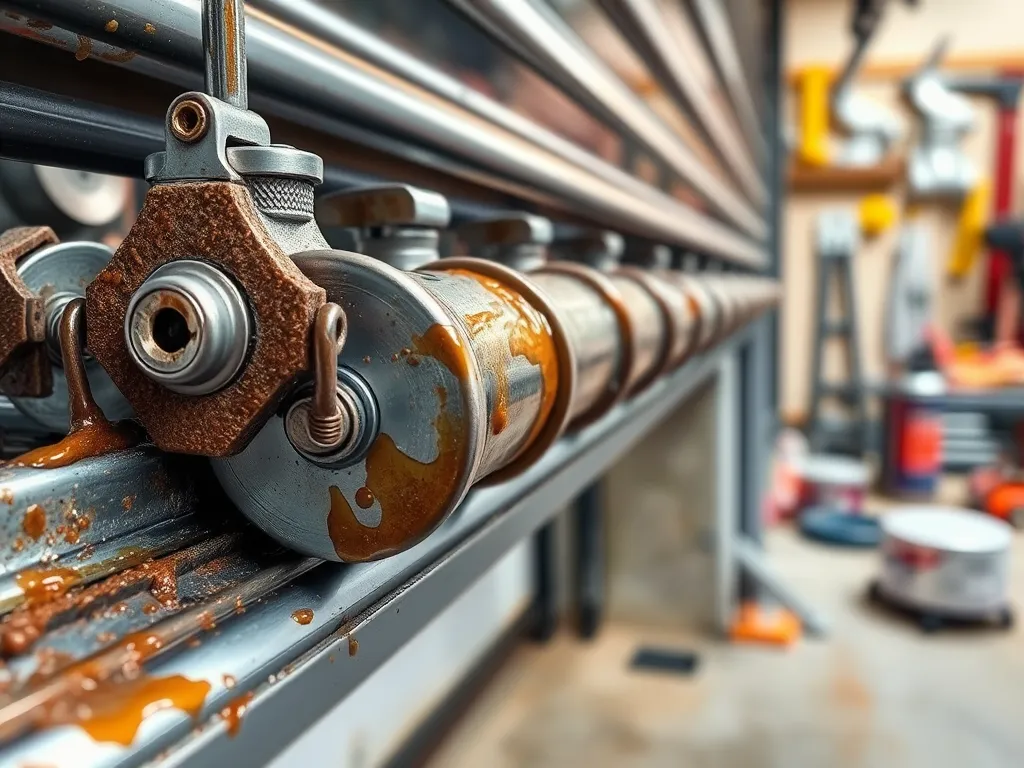Expert Lubrication Techniques for Garage Door Rollers

Lubrication Techniques for Garage Door Rollers
Lubrication Techniques for Garage Door Rollers are essential for ensuring the smooth operation and longevity of your garage door. Proper lubrication minimizes friction between the rollers and the tracks, reducing wear and tear, and helping to prevent costly repairs. In this article, we will explore the various lubrication techniques that can keep your garage door running efficiently and effectively.
To maintain the functionality of your garage door, it’s vital to use the correct lubrication techniques for garage door rollers. This includes regularly applying the right type of lubricant, understanding when to lubricate, and recognizing signs of wear and tear. From silicone sprays to grease, knowing what products work best for your environment can significantly improve the life of your garage door system.
Furthermore, incorporating a systematic approach to lubricating garage door rollers can save time and effort in the long run. Identifying the factors that impact lubrication, such as climate and frequency of use, will help in determining the best practices tailored to your specific needs. In the following sections, we will delve deeper into the types of lubricants available, lubrication frequency, a step-by-step process for lubrication, common problems with garage door rollers, and the choice between DIY and professional lubrication.
By implementing effective lubrication techniques for garage door rollers, homeowners can enjoy a hassle-free operation of their garage doors, prolonging their lifespan and ensuring safety. This article serves as a comprehensive guide to equip you with the knowledge needed for optimal maintenance of your garage door system.
For homeowners, achieving quiet operation of garage doors can significantly enhance their living environment.
Now that we've set the stage for the importance of lubrication in garage doors, let's get into details about the types of lubricants you can use for garage door rollers.
Types of Lubricants
Silicone-based lubricants are among the most recommended options for garage doors because they provide excellent coverage and reduce friction without attracting dust and dirt. They are typically available in spray cans, making it easy to apply evenly on the rollers and tracks. Silicone lubricants also prevent rust and corrosion, which can be a common issue in garage door systems exposed to moisture.
Implementing effective roller lubrication techniques ensures smooth functionality, prolonging the life of your garage door.
When choosing between grease vs. oil lubricants, it's crucial to understand their individual characteristics. Grease tends to stay in place longer than oil, which may seep out over time. However, oil is generally easier to apply and can penetrate tight spaces more effectively. A combination of both can sometimes be beneficial, depending on specific needs and conditions.
Some of the best silicone sprays for door rollers are those that are specifically designed for garage doors. These products often guarantee long-lasting lubrication and protect against moisture. When selecting a product, check for user reviews and consult with professionals for recommendations tailored to your garage door model.
Regular garage door care not only improves performance but also enhances safety and security for your home.
Choosing the right lubricant based on the climate you live in is also crucial. In cold climates, a more viscous lubricant that doesn't freeze can be important, while in hot climates, a lightweight lubricant that won’t gum up is beneficial. Always read product descriptions to ensure compatibility with your local weather conditions.
Finally, it’s essential to consider the environmental impact of lubricants. Opt for eco-friendly products that are free from harmful chemicals, as these are less likely to cause damage to your property and the surrounding environment. Many manufacturers now offer sustainable options that meet both performance and environmental standards.
Lubrication Frequency
How often you should lubricate garage door rollers depends on several factors, including usage frequency and environmental conditions. A general guideline is to lubricate at least twice a year, but weekly maintenance checks are recommended, especially for doors that are used daily.
Signs that your rollers need lubrication include squeaking noises, a sluggish response when opening or closing the door, and visible wear on the rollers themselves. If you notice any of these symptoms, it’s crucial to address the lubrication immediately to prevent further damage.
Seasonal maintenance tips for garage doors include checking the rollers and tracks during spring and fall. These inspections can help identify potential issues before they escalate. Cleaning any buildup and applying lubricant at these times can enhance performance.
Neglecting lubrication can lead to increased friction, causing wear and tear on both the rollers and the track. Eventually, this can lead to the rollers becoming misaligned or the door becoming stuck altogether, which can incur higher repair costs.
Creating a maintenance schedule for your garage door is a practical approach. Make notes on when you apply lubricant, any adjustments made, and results observed to easily track the condition of your garage door system over time.
Step-by-step Lubrication Process
Preparing your garage door for lubrication includes cleaning the rollers and tracks before applying any lubricant. Remove dust and debris with a damp cloth and ensure the door is in the closed position for safe access to all parts.
Safety precautions when lubricating include wearing gloves and safety goggles. It is also essential to ensure that the garage door is secure and will not close unexpectedly. Always disconnect the power to the automatic opener, if applicable, to prevent any accidental operation during maintenance.
Effective application methods involve using a silicone spray or grease gun to apply lubricant directly to the rollers and tracks. Be sure to apply consistently to avoid buildup in certain areas.
Areas to focus on during lubrication include the rollers, hinges, and the top of the door where the cable is attached. Don’t forget to lubricate the springs as well, as they handle most of the heavy lifting during door operation.
Post-lubrication, testing the garage door is important. Open and close the door several times to ensure smooth operation. Listen for any unusual noises and observe if the door is moving without sticking or hesitation. Moreover, make necessary adjustments if you notice any misalignment.
Common Garage Door Roller Problems
Identifying wear and tear in rollers is crucial for timely maintenance. Look for visible cracks or flat spots on the roller surfaces. Also, check for discoloration, which may indicate an impending failure.
Lubrication-related issues and solutions include preventing excessive buildup, which can create more friction. If lubrication is not done correctly, rollers may get stuck, leading to more significant problems. Maintaining a balanced application is key.
Preventing rust and corrosion on rollers can be achieved by regularly applying a protective coating. Choosing lubricants that include rust inhibitors can also be an effective strategy, especially in high-moisture environments.
The impact of dirt and debris on roller performance cannot be overstated. Regular cleaning of the rollers and tracks will greatly enhance performance and reduce the need for frequent lubrication.
When to replace garage door rollers should be determined by the overall condition and performance. If you notice persistent issues despite lubrication, or if the rollers seem excessively worn, it may be time to consider a replacement.
DIY vs. Professional Lubrication
Pros of DIY lubrication include cost-effectiveness and the convenience of doing it on your schedule. Many homeowners find satisfaction in handling their maintenance and can save money on service calls.
However, knowing when to call a professional for lubrication is essential as well. If you encounter complex issues such as misalignment or if your garage door isn't functioning properly despite lubrication efforts, hiring a professional may be the best course of action.
Cost comparison of DIY vs. professional services can vary significantly. A DIY approach only incurs the cost of lubrication products, while professionals charge for labor and expertise, which can be worth the investment in complicated cases.
Tools needed for DIY lubrication include a lubricant product, cleaning cloths, gloves, and safety goggles. It’s also helpful to have a ladder if your garage door is particularly high or difficult to access.
Identifying trusted professionals for garage door services involves researching local companies, checking customer reviews, and ensuring they have the necessary licenses and insurance. Recommendations from friends or family can also help you find a reliable service provider.
